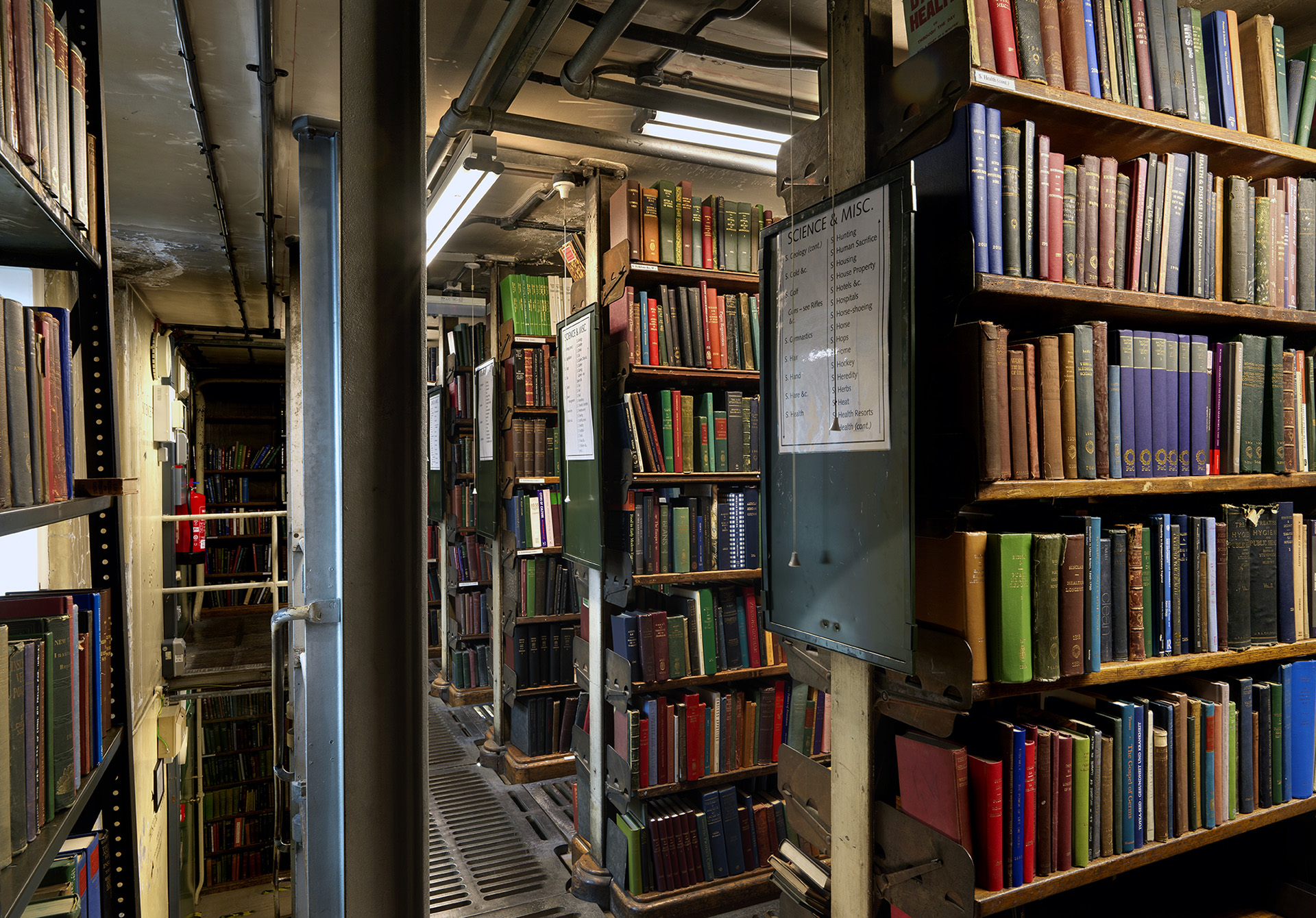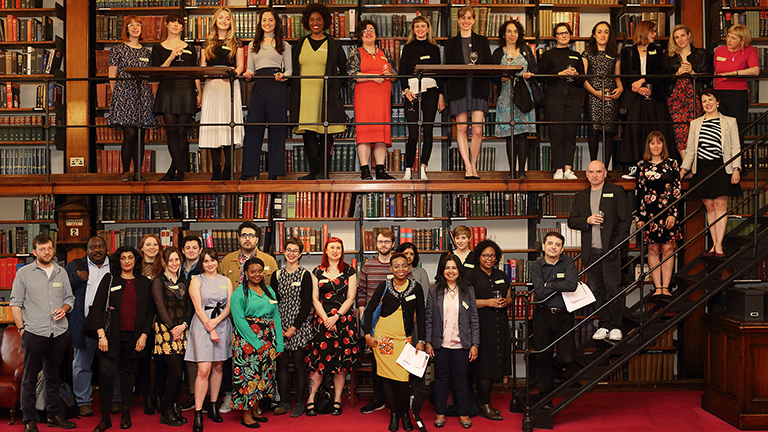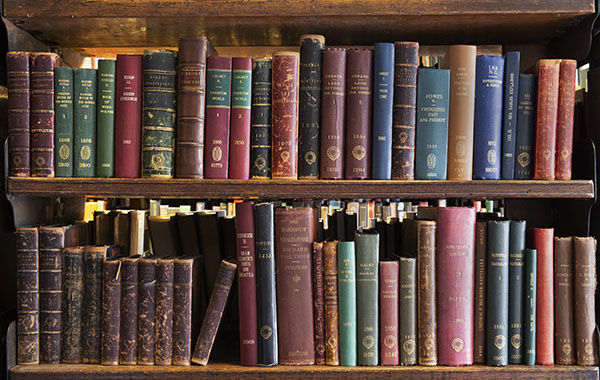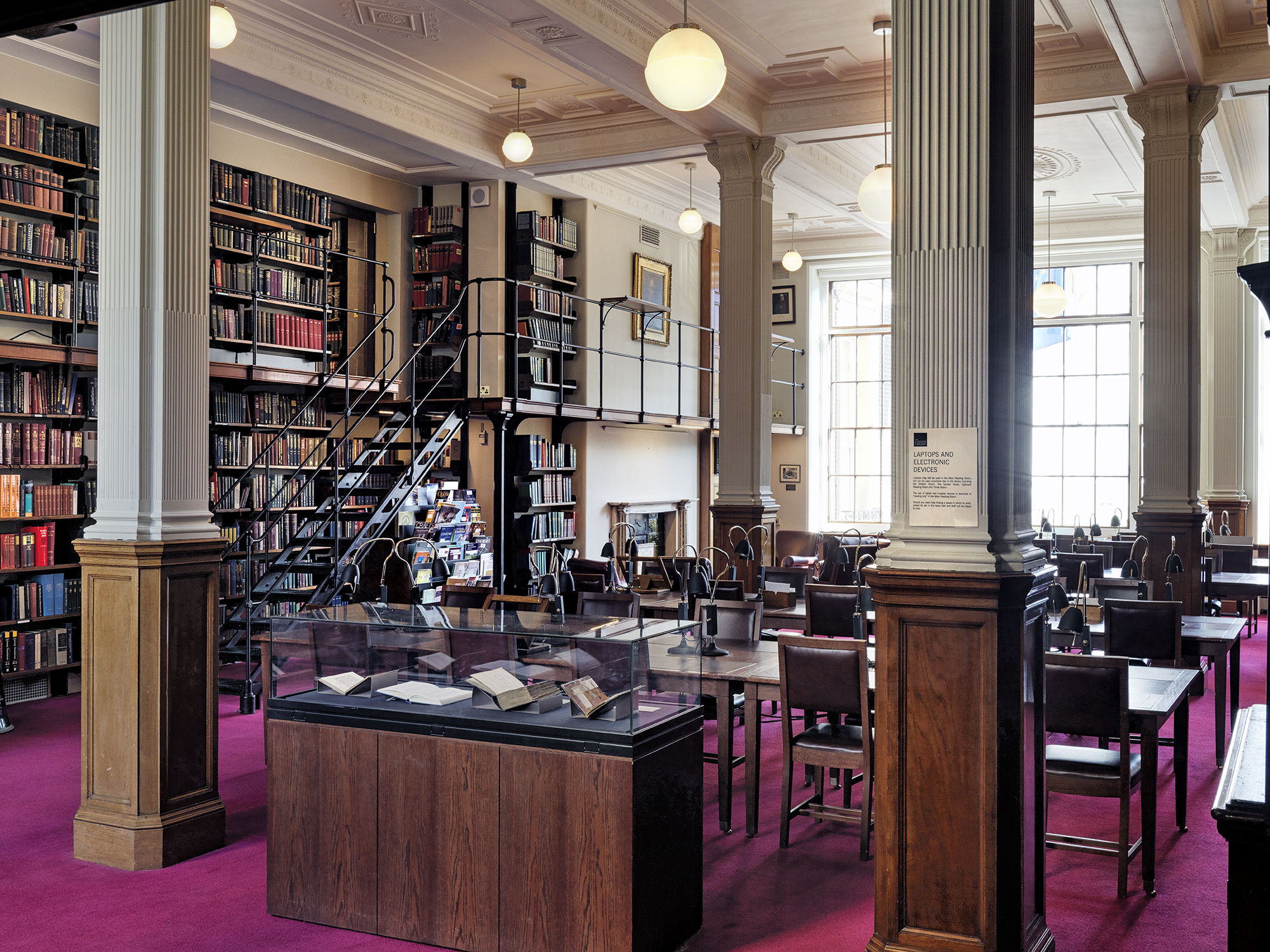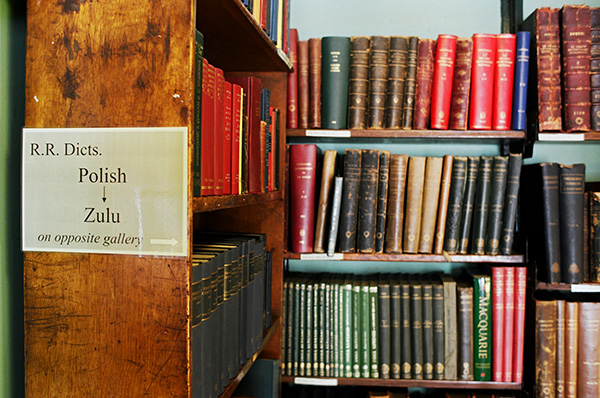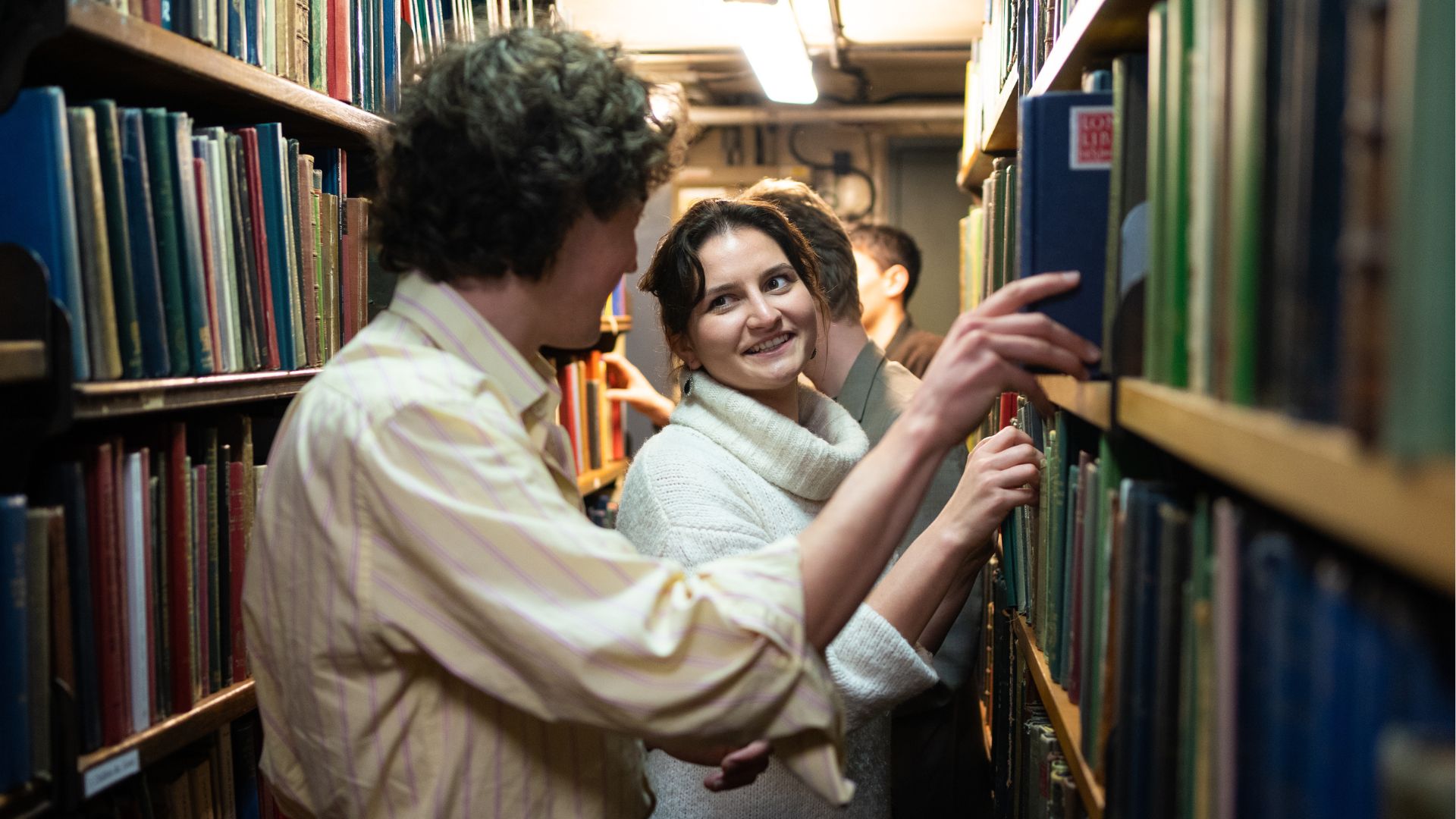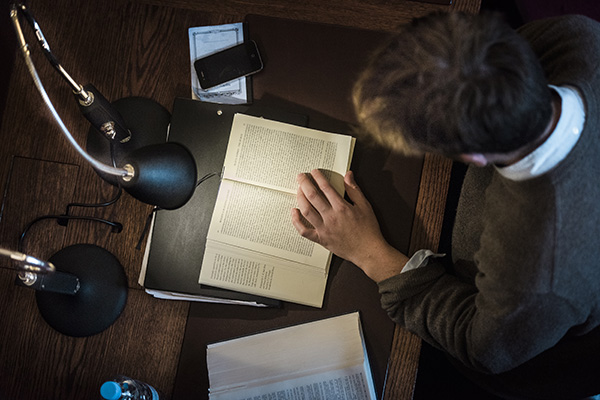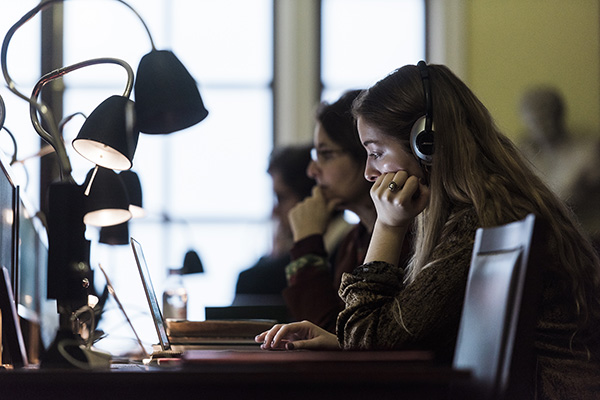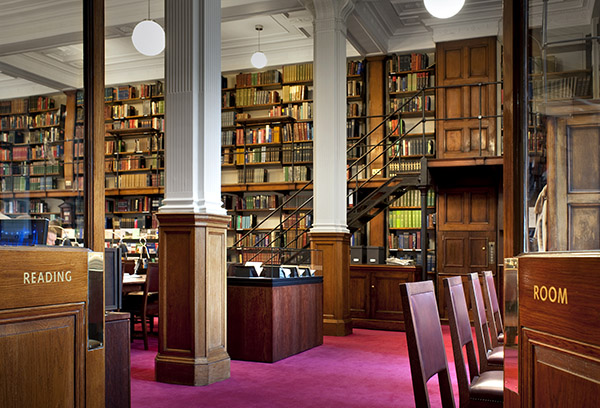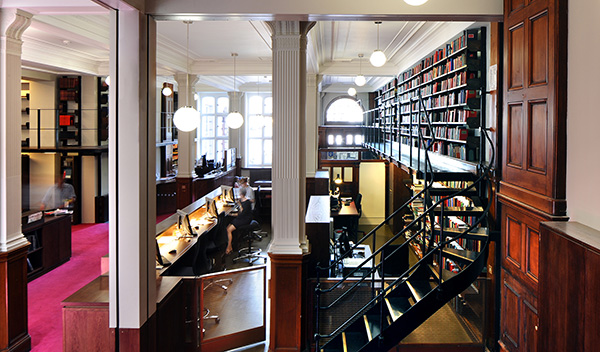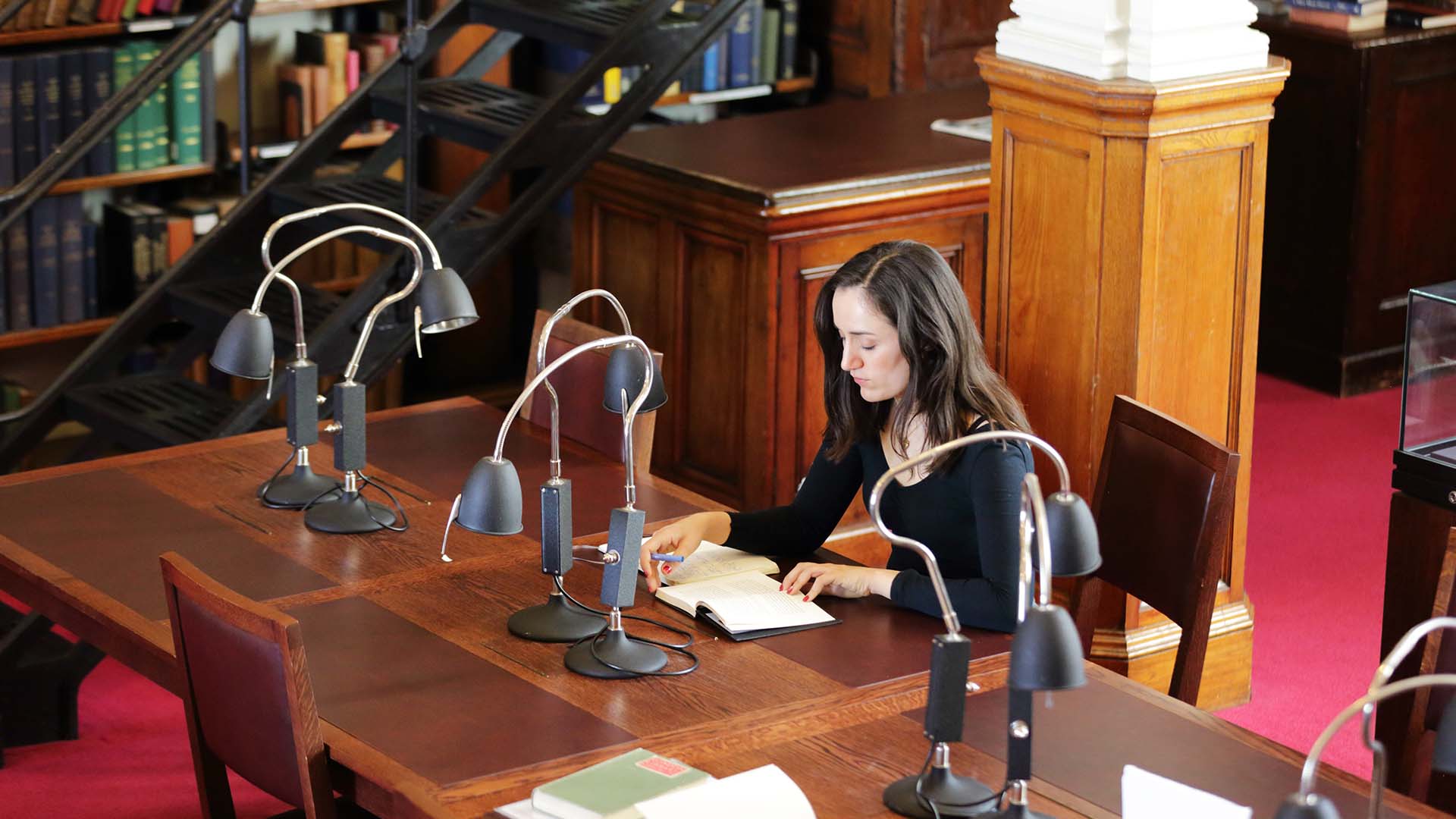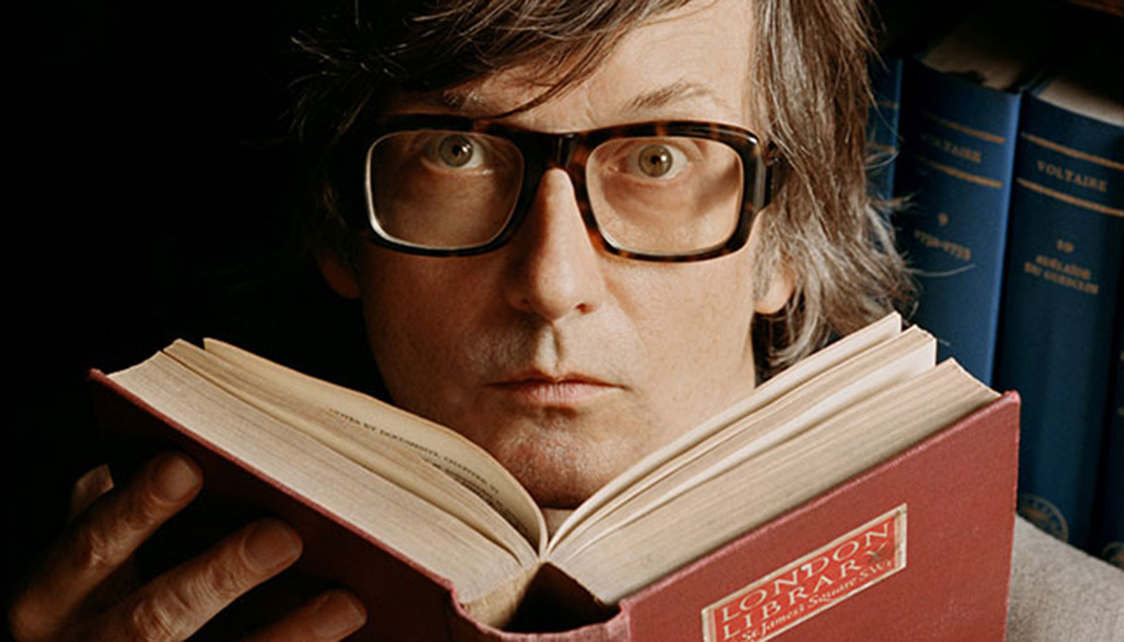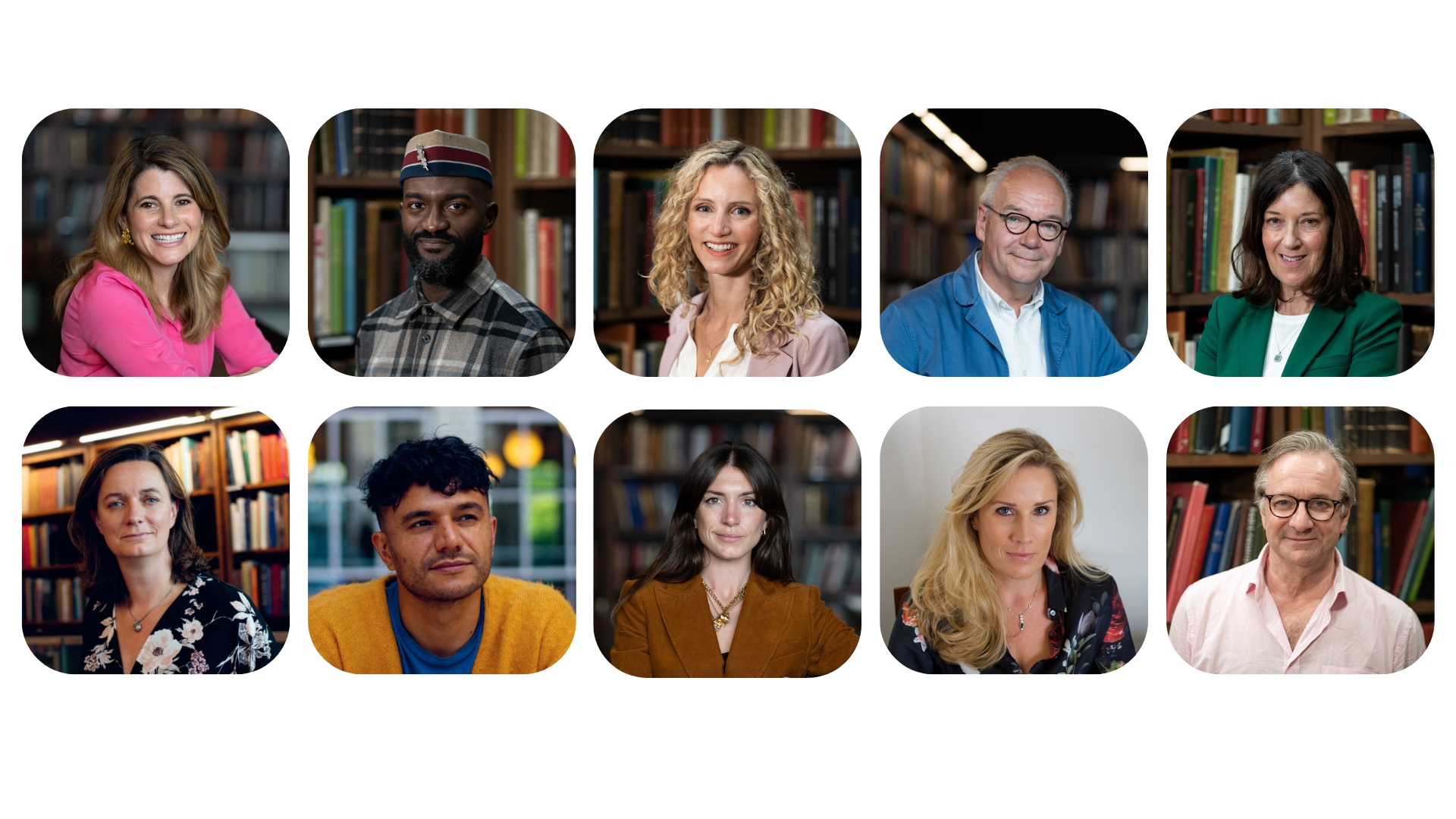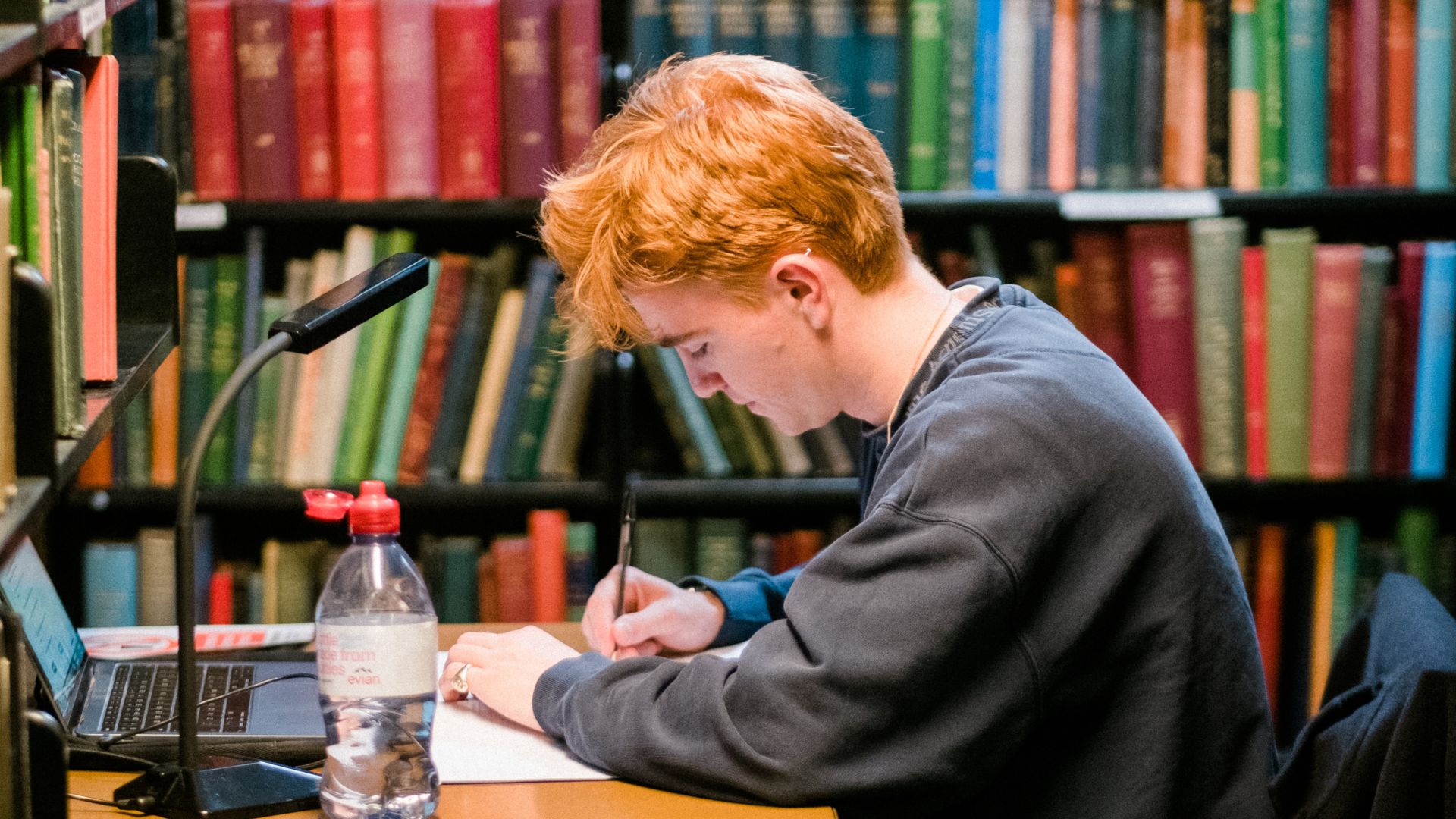We have been looking at summers past – mining the borrowing records to compile the list of July and August’s 20 most borrowed books (Fiction and non-Fiction) over the past ten years.
Here's what we found:
FICTION
Wolf Hall, Hilary Mantel (London: Fourth Estate, 2009)
Journey Into Fear, Eric Ambler (London: Hodder and Stoughton, 1940)
Mrs Palfrey at the Claremont, Elizabeth Taylor (London: Chatto & Windus, 1971)
The Siege of Krishnapur: a novel, J.G. Farrell (London: Weidenfeld and Nicolson, 1973)
A Sport and a Pastime, James Salter (New York: Modern Library, 1995)
The Mandelbaum Gate, Muriel Spark (London: Macmillan, 1965)
An Officer and a Spy, Robert Harris (London: Hutchinson, 2013)
Stoner, John Williams; with an introduction by John McGahern (London: Vintage Books, 2003)
The Stranger's Child, Alan Hollinghurst (London: Picador, 2011)
Nocturnes: Five Stories of Music and Nightfall, Kazuo Ishiguro (London: Faber, 2009)
Scoop: A Novel, Evelyn Waugh (London: Eyre Methuen, 1978)
Orlando: A Biography, Virginia Woolf (London: Leonard and Virginia Woolf at the Hogarth Press, 1928)
The Wedding Group, Elizabeth Taylor (London: Chatto & Windus, 1968)
The Radetzky March, Joseph Roth; translated by Eva Tucker (Harmondsworth : Penguin, 1984)
The Buried Giant, Kazuo Ishiguro (London: Faber & Faber, 2015)
The Green Hat: a romance for a few people, Michael Arlen (London: Collins, [1924])
Atlas Shrugged, Ayn Rand (New York: Signet, c1992)
The Bell Jar, Sylvia Plath (London: Faber, 1996)
Excellent Women, Barbara Pym (London: Cape, 1952)
Some Hope, Edward St. Aubyn (London: Heinemann, 1994)
NON-FICTION
Iron Kingdom: The Rise and Downfall of Prussia, 1600-1947, Christopher Clark (London: Allen Lane, 2006)
Cairo in the War, 1939-1945, Artemis Cooper (London: Hamish Hamilton, 1989)
The Long Weekend: life in the English Country House between the wars, Adrian Tinniswood (London: Jonathan Cape, 2016)
Between the Woods and the Water: on foot to Constantinople, Patrick Leigh Fermor (London: John Murray, 1986)
A Time of Gifts: on foot to Constantinople: (London: John Murray, 1977)
East West Street: on the origins of genocide and crimes against humanity, Philippe Sands (London: Weidenfeld & Nicolson, 2016)
Outsider: always almost: never quite: an autobiography, Brian Sewell (London: Quartet, 2011)
The Wartime Journals, Hugh Trevor-Roper; edited by Richard Davenport-Hines (London: I. B. Tauris, 2012)
Vanished Kingdoms: the history of half-forgotten Europe, Norman Davies (London: Allen Lane, 2011)
Hugh Trevor-Roper: the biography, Adam Sisman (London: Weidenfeld & Nicolson, 2010)
Bloody Victory: the sacrifice on the Somme and the making of the twentieth century, William Philpott (London: Little, Brown, 2009)
A View from the Foothills: the diaries of Chris Mullin, Chris Mullins, edited by Ruth Winstone (London: Profile Books, 2009)
The Fall of Rome; and the end of civilization, Bryan Ward-Perkins (Oxford: Oxford University Press, 2005)
The last Bourbons of Naples: (1825-1861), Harold Acton (London: Methuen, 1961)
Religion and the Decline of Magic: studies in popular beliefs in sixteenth and seventeenth century England, Keith Thomas (London: Weidenfeld and Nicolson, 1971)
Gladstone, Roy Jenkins (London: Macmillan, 1995)
Citizens: a chronicle of the French Revolution, Simon Schama (London: Viking, 1989)
Capital in the Twenty-first Century, Thomas Piketty; translated by Arthur Goldhammer (Cambridge Mass; London: Belknap Press of Harvard University Press, 2014)
One Hundred Letters from Hugh Trevor-Roper, edited by Richard Davenport-Hines and Adam Sisman (Oxford: Oxford University Press, 2014)
An English Affair: sex, class and power in the age of Profumo, Richard Davenport-Hines (London, Harper Press, 2013)
The London Library Magazine
See The London Library magazine issues from 2018.
Winter 2018
Autumn 2018
Summer 2018
Spring 2018
The inaugural London Library Emerging Writers Programme ran from 2019-2020 with 38 writers, who worked on projects across poetry, playwriting, screenwriting, adult fiction, children's and YA fiction and non-fiction.
The candidates were chosen from a field of over 600 applicants by a panel of judges comprising novelist London Library Trustee Daisy Goodwin (Chair); poet Raymond Antrobus; Associate Director, Awards at the Royal Society of Literature Paula Johnson; novelist and screenwriter Nikita Lalwani; and agents from AM Heath.
Their anthology, From the Silence of the Stacks, New Voices Rise Vol. I, is now available to read:
The cohort are:
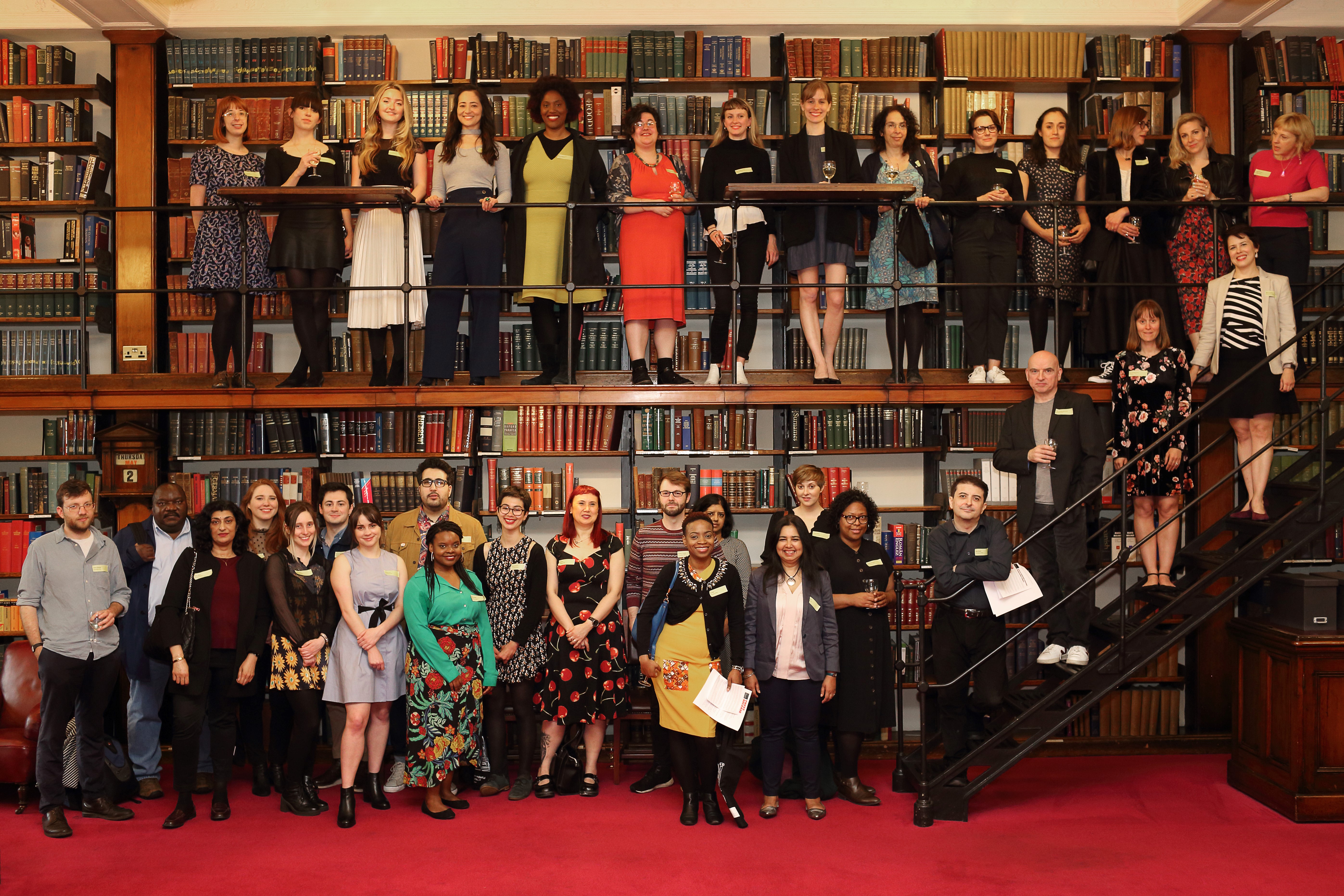
Abass Collier is originally from Sierra Leone, where he studied English, Literature and Drama in university. He now lives in South East London. He has written and directed three short films and has a self-published novella, which he is adapting into a screenplay. He is also working on a novel.
Abi Daré was born in Nigeria and has lived in the UK for over 18 years. She has an MA in Creative Writing from Birkbeck University of London. Her debut, The Girl with the Louding Voice, won The Bath Novel Award in 2018 and will be published by Sceptre in 2020
Alex David is an amateur monarchy historian, with a successfully self-published first book on Amazon on British monarchy facts and trivia. Proud South Londoner and EU citizen, his wish is to become a professional author specializing on European royal history and biography. He is also interested in royally-related art and travel writing.
Alice Hughes is a writer and PR professional. She is currently working on a short story collection about nature in the modern world and a character-driven novel about natural history collecting. She volunteers for Greenpeace and London Wildlife Trust, and is a member of the London Natural History Society.
Amber Medland studied English at Cambridge University and has an MFA (Writing) from Columbia University (NY). She currently lives in Brixton. Wild Pets, her first novel, was published by Faber in spring 2021.
Anita Goveas is British-Asian and fueled by strong coffee and paneer jalfrezi. She was first published in the 2016 London Short Story Prize anthology, most recently in X-Ray lit and New Mag. She’s on the editorial team at Flashback Fiction and an editor at Mythic Picnic’s Twitter zine.
Anna Kahn is a Barbican Young Poet and a former member of the Roundhouse Collective. Her work has been published by The Rialto and The London Magazine among others, and has appeared in anthologies including Why Poetry: The Lunar Poetry Podcasts Anthology and The Dizziness of Freedom.
Bebe Ashley is interested in both ekphrastic and linguistic translations. She is working on a collection inspired by Harry Styles, and will begin a PhD exploring British Sign Language poetry in the autumn. Her recent poetry can be found in Modern Poetry in Translation, Poetry Jukebox, and The Tangerine.
Carly Minsky is a technology journalist and fiction-writer who spends most of her time hypothesising about human nature. She uses her lived experience as a twin alongside her background in science and philosophy research to tell stories which challenge the way we understand our individuality, our relationships, and the world we inhabit. She is working on a novel titled “The one of us”, learning how to play the accordion, and trying to find time to practice yoga.
Carmina Bernhardt is a multi-hyphenate maker of theatre and film, originally hailing from Vancouver, Canada and based in London. Her debut full-length play R’n’J: The Untold Story of Shakespeare’s Roz and Jules will premiere at Edinburgh Fringe 2019. Graduate of RCSSD’s MA Acting for Screen with Distinction.
Deborah Torr is a writer from South London. After studying English Literature at UEA, Deborah went on to write for the funeral industry, and now works for an international development charity. Deborah had a winning entry in Spread the Word’s City of Stories competition 2018, and is working on a short story collection.
Emily Ruth Ford is a writer and translator. She studied English at Oxford University and Creative Writing at UEA, and spent ten years as a journalist for The Times and Agence France-Presse, with postings in China and India. She won the Royal Society of Literature V.S. Pritchett Short Story Prize in 2017 and 2018.
Erika Banerji short stories have been long listed for the Lorian Hemingway, V. S Pritchett and London Short Story Prize. Erika lives in London and is currently working on a novel and a collection of stories.
Finnian Brewer was born in Swansea in 1993. He has a MA in Writing from the University of Warwick and studied English at Homerton College, Cambridge. He lives in Folkestone.
Hattie Clarke is a welsh writer, living in London. After studying creative writing at the University of Warwick, she worked for the British Museum where she first began researching her novel. Her work is published online by the women's writing collective, Dear Damsels, and she is a member of the Collier Street Fiction Group.
Helen Bowell is a graduate of The Writing Squad and the London Writers Awards, and is a former Foyle Young Poet. She works at The Poetry Society and co-founded the Dead [Women] Poets Society. Her poems have appeared in Strix, The Manchester Review, Introduction X: The Poetry Business Book of New Poets (2017) and elsewhere.
Isabelle Baafi is a British writer and filmmaker of Jamaican and South African descent. Her work has been published in Allegro, Moko Magazine, Litro, Kalahari Review and elsewhere. She is currently working on her debut poetry collection
Jeremy Wikeley was born in Birmingham in 1991 and grew up in Romsey, Hants. After university he taught EFL and worked in the office of an MP before moving to London to join the Orwell Foundation in 2016. He is working on a pamphlet of poems and some short stories.
Joanna Dobson spent 12 years living in an indigenous community in the Altai Republic, Siberia, working as a translator on natural and cultural heritage projects. Joanna studied Russian at Cambridge and is now based in Norfolk working as a Russian translator and writing a travelogue/cultural study on the Altai region.
Karim Flint is a screenwriter who started his writing career as a journalist before realising sharing the stories constantly percolating through his brain was more fun. Plus the hours are a lot better.
Laura Sanchez, having worked in theatre, spent years supporting young people at risk of exclusion. She continues to work with young people, using creative writing as a means of helping them take control of their own experiences.
Lianne Dillsworth lives in London where she can be found writing longhand on the tube to work. In 2018, she graduated from Royal Holloway with a MA in Creative Writing. Lianne's debut novel, Theatre of Marvels, was published in 2022.
L Kiew is a Chinese-Malaysian living in London, who earns her living as an accountant. She holds a MSc in Creative Writing and Literary Studies from Edinburgh University. Her debut pamphlet The Unquiet came out with Offord Road Books in February 2019.
Lou Kramskoy graduated from the MA Creative Writing at Birkbeck in 2018, where she was joint recipient of their Birkbeck / Sophie Warne Fellowship. As well as winning the 2017 Aesthetica Creative Writing Award, she has also been longlisted for the London (2018) and Bristol (2017) short story prizes. Lou is currently working on her first novel.
Lucy Steeds was born and raised in London. She studied English Language and Literature and then World Literatures at Oxford University. Her work has been listed for the BPA First Novel Award and the Moniack Mhor Emerging Writer Award.
Madi Maxwell-Libby is a writer-performer and stand-up poet. Her satirical solo show Massive Sense of Urgency, about an office temp trying to understand neoliberalism, was commissioned by the Old Vic as part of a series of new contemporary monologues, and has R&D support from the Arts Council, Ovalhouse, and Battersea Arts Centre. Poetry credits include commissions for BBC iPlayer, the Natural History Museum, and Nationwide. She is a former Roundhouse poetry slam champion, and wears a lot of wool.
Mandy Rabin writes fiction for children aged 9+, and spends the rest of her time teaching in primary schools and acting as Chief Oppressor to her teenage daughters. Her stories have been longlisted for the Bath Children’s Novel Award and she is represented by Stephanie Thwaites at Curtis Brown Group.
Megan Buskey is a nonfiction writer currently working on a manuscript about her family's experience in Ukraine and Siberia during and after World War II. She has been traveling to and studying the former Soviet Union for more than a decade, including a year spent living in Ukraine as a Fulbright Fellow.
Mia Vigar has studied creative writing at UEA, the University of Manchester, and through Curtis Brown Creative; and has released a couple of albums of original music. Her short stories have been shortlisted for the Bridport Prize and the Brighton Prize, and she’s working on her first novel, which draws on her Nordic heritage.
Mónica Parle is a Mexican American from El Paso and Houston, Texas. She has a BA from the University of Texas and a Master of Fine Arts in Creative Writing from the University of Houston. Mónica lives in London, and her work was Highly Commended in the 2018 FAB Prize.
Natasha Cutler grew up in Hertfordshire and now lives and works in London. She studied History at Cambridge, graduating in 2017. In 2018, she completed the Curtis Brown Literary Agency’s Creative Writing course.
NJ Stallard is a writer, editor and poet. Her work has been featured in publications such as TANK, Hotel, PN Review and The White Review, and she is the winner of the Aleph Writing Prize 2018. She is working on her first novel.
Paul Timothy McCarthy studied Science at Manchester and French at the Université de Bourgogne, so learning to accept disasters in the laboratory or in life with a Gallic shrug. Via stints as a DJ, indie-pop dreamer and cottage-industry screenwriter, he later stumbled into freelance writing in London, where he completed his MA.
Qudsia Mirza was born in the UK into a Pakistani Muslim family. She is currently working on a collection of short stories. She lives in London.
Sabrina Richmond is a performer, writer and director with a former career in media. Her first play An African in the Snow has an upcoming short residency at The Pleasance theatre’s LABS programme. She was selected to be one of 5 leaders on the Refugee Week Leadership Project with Counterpoints Arts.
Sian Chaney-Price – avid reader, fantastical story maker-upper, ran away from teaching to do a Masters in Writing for Young People, retrained to be a librarian, but more than anything wants to be a writer when she grows up. Attributes all of her best work to her cat, who is also her editor.
Swithun Cooper has published work in Intelligent Life, The London Magazine, Magma, and several anthologies. He won an Eric Gregory Award from the Society of Authors, and is currently studying for an MA in fiction writing at Royal Holloway, where he was awarded the Sarah Perry Bursary.
Xenobe Purvis was born in Tokyo in 1990. She read English Literature at Oxford University, and has an MA in Creative Writing from Royal Holloway. She is a writer and literary researcher, currently assisting in the preparation of a volume of Christopher Isherwood’s selected letters. She is working on a novel.
Read more: The London Library Emerging Writers Programme Cohort 2019/20
The Books that made Dracula
The London Library today unveiled a fascinating discovery that sheds new light on how Dracula was researched and written. We've found 26 books that are almost certainly the original copies that Bram Stoker used to help research his enduring classic.
Philip Spedding, the Library’s Development Director who made the discovery, commented: “Bram Stoker was a member of The London Library but until now we have had no indication whether or how he used our collection. Today’s discovery changes that and we can establish beyond reasonable doubt that numerous books still on our shelves are the very copies that he was using to help write and research his masterpiece.”
Philip’s detective trail began with the collection of Stoker’s handwritten and typed notes that had been discovered in 1913 but only published in facsimile form in 2008*. The notes list a wide range of Stoker’s sources for Dracula and include hundreds of references to individual lines and phrases that he considered relevant. A recent trawl of our shelves has revealed that the Library has original copies of 25 of these books, carrying detailed markings that closely match Stoker’s notebook references.
The markings range from crosses and underlinings against relevant paragraphs, to page turnings on key pages, to instructions to have someone copy entire sections into his typewritten notes.
Some of the most heavily marked books include Sabine Baring-Gould’s “Book of Were-Wolves” and Thomas Browne’s “Pseudodoxica Epidemica”. But the range of titles also sheds light on the detail of Stoker’s geographical and historical research – for example, AF Crosse’s “Round About the Carpathians” and Charles’ Boner’s “Transylvania”.
The suggestion that Stoker was using the Library heavily is given added weight by the timing of his seven-year membership which coincides almost exactly with the period when he was working on Dracula and beginning to develop an active writing career alongside his already very successful role as theatre manager at The Lyceum Theatre. Earlier research by our Archive Librarian Helen O’Neill showed that he joined in 1890, the year he visited Whitby and first developed the idea for his vampire story, and he finally left the Library in 1897, the year Dracula was published. His membership form is seconded by his close friend Henry Hall Caine, a bestselling author of the day, a London Library member, and the man to whom Stoker dedicated Dracula, using Hall Caine’s nickname “Hommy-Beg”.
Philip Spedding continued, “It is almost certain that the books we have found have been marked up by Bram Stoker himself and that he drew heavily on The London Library’s collection to help research Dracula. Indeed, it is not fanciful to suggest that his extraordinary tale of the Transylvanian undead has many of its origins in the quiet confines of St. James’s Square.”
Professor Nick Groom from Exeter University and a leading expert on gothic literature said, “This is a very exciting discovery. I have examined the books and their annotations with Philip Spedding and have compared them with Bram Stoker’s own notes. I am in no doubt that Bram Stoker used these very copies for Dracula – a book that took him seven years to write. They demonstrate that The London Library was the crucible of one of the most influential novels in world history.”
Philip Marshall, Director of The London Library concluded: “Bram Stoker followed the same path that many writers have pursued before and since - using the Library to transition into a serious writing career, and drawing heavily on the Library’s collection to seek inspiration and ideas for his masterpiece. With the Library’s incredible list of members past and present, some of the most famous characters in fiction must have been developed here – with today’s discovery we can feel sure that Dracula was one of them. We hope that many aspiring writers will follow Bram Stoker’s example and use The London Library as a source of inspiration and support when creating their own masterpieces.”
Watch the video as Philip Spedding tells the story behind an amazing discovery, alternatively view it here.
The Books That Created Dracula from The London Library on Vimeo.
Books referenced in Stoker's notebooks that are still on our shelves
- Nineteenth Century XVIII, Mme Emily de Laszowka Gerard, Kegan Paul, Trench & Co, July 1885 The Book of Were-Wolves, Sabine Baring-Gould, Smith, Elder and Co, 186 Pseudodoxia Epidemica,Thomas Browne, 1672 Magyarland, Nina Elizabeth Mazuchelli, Sampson Low, Marston, Searle & Rivington, 1881 The Golden Chersonese, Isabella Bird, John Murray, 1883 Round about the Carpathians, AF Crosse, Blackwoods, 1878
- On the Track of Crescent, Major EC Johnson, Hurst & Blackett, 1885
- Transylvania: Its Products and Its People, Charles Boner, Longman, Green, Reader & Dyer, 1865
- An Account of the Principalities of Wallachia and Moldavia, William Wilkinson, Longman, Hurst, Rees, Orme & Brown, 1820
- Curious Myths of the Middle Ages (2 vol), Sabine Baring-Gould, Rivington, 1868
- Germany Past and Present (2 vol), Sabine Baring-Gould, C Kegan Paul & Co, 1879
- Legends & Superstitions of the Sea, Bassett The Origin of Primitive Superstitions, Dorman, Lippincott, 1881
- Credulities Past & Present, W Jones, Chatto & Windus, 1880
- The Folk-Tales of The Magyars, The Rev W Henry Jones and Lewis L. Kropf, The Folk-Lore Society, 1889
- Superstition & Force, HC Lea, Lea Brothers & Co, 1892
- Sea Fables Explained, Henry Lee, William Cloves & Sons, 1883
- Anecdotes of the Habits and Instincts of Birds, Reptiles and Fishes, Mrs R Lee, Grant & Griffith, 1853
- The Other World; or, Glimpses of the Supernatural. Being Facts, Records, and Traditions, FG Lee, Henry S King & Co, 1875
- Letters on the Truths Contained in Popular Superstitions, Herbert Mayo, Blackwood, 1849
- The Devil: His Origin, Greatness and Decadence, Rev Albert Réville, Williams & Norgate, 1871
- A Tarantasse Journey through Eastern Russia in the Autumn of 1856, W Spottiswode, Longman, Brown, Green, Longmans & Roberts Miscellany, W Spottiswode Traité des Superstitions qui Regardent les Sacraments (4 vol), Jean-Baptiste Thiers, Louis Chambeau, 1777
- The Phantom World: or, The Philosophy of Spirits, Apparitions &c. (2 vol), Augustin Calmet, Richard Bentley, 1850
- The Land Beyond the Forest (2 vol), E Gerard, William Blackwood & Sons, 1888
Other books on the Library’s shelves not referenced in Stoker’s notebooks but containing comparable marginalia
- On the Truths Contained in Popular Superstitions with an Account of Mesmerism, H Mayo, William Blackwood & Sons, 1851
- La Magie et L'Astrologie dans L'Antiquité at au Moyen Age, Didier et Cie, 1860
- Anecdotes of the Habits and Instincts of Animals, Mrs R Lee, Grant & Griffith, 1852
- Narratives of Sorcery and Magic (2 vol), Thomas Wright, Richard Bentley, 1851
- Things not Generally Known. Popular Errors Explained, John Timbs, Kent & Co, 1858
- Roumania Past and Present, James Samuelson, Longmans, Green & Co, 1882
Books referenced in Bram Stoker’s notebooks no longer on the Library’s shelves
- A Glossary of Words used in the Neighbourhood of Whitby, FK Robinson
- The Natural & Supernatural of Man, John Jones,
- History & Mystery of Previous Stones, W Jones
- Superstition Connected with Hist & Medicine
Books referenced in Bram Stoker’s notebooks never held by the Library
- Fishery Barometer Manual, Robert Scott
- The Theory of Dreams (2 vol), FC & J Rivington, St. Pauls Churchyard, 1808
- Sea Monsters Unmasked, Henry Lee
- A report in IBIS on "The Birds of Translyvania", Danford and Brown
* ‘Bram Stoker’s Notes For Dracula’ was published in 2008 in a facsimile edition annotated and transcribed by Robert Eighteen-Bisang and Elizabeth Miller

